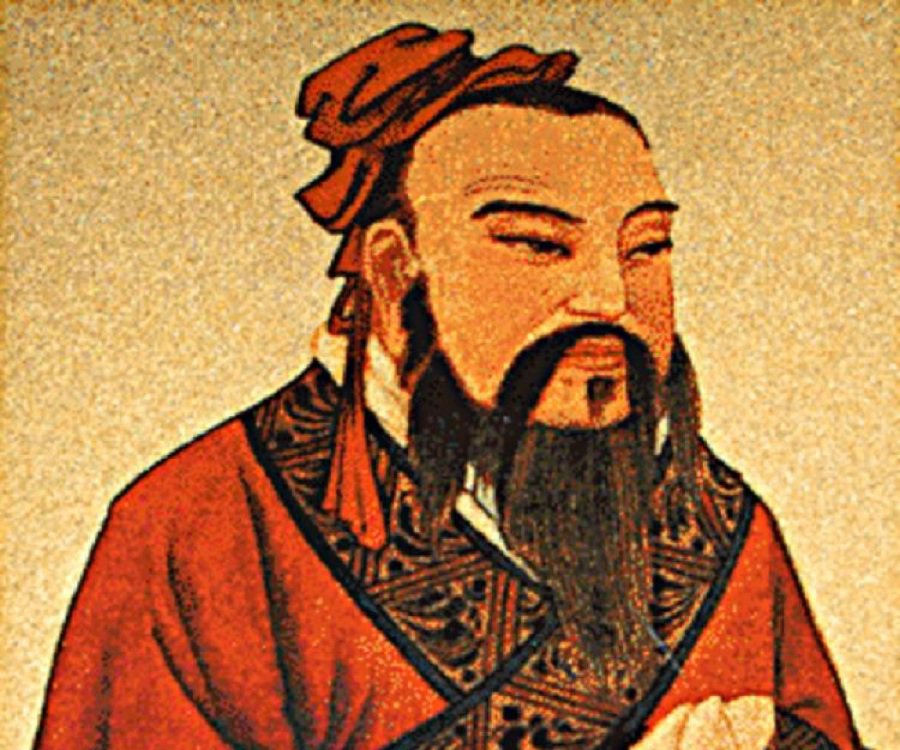A Modern Confucianism? -现代儒学?

China’s strategy of setting up institutions in partner countries to teach Chinese language and culture is increasingly being seen with suspicion and contempt. Swinburne University professor John Fitzgerald, who lived and studied in China, argues that with more than 500 Confucian Institutes in 140 countries, it should be widely recognised that the institutes have been directly instructed to promote particular aspects of Chinese governance that would make Chinese rule seem appealing. For example, some aspects of Confucianism that promote obedience and hierarchy are being pushed to make the Chinese Communist Party’s centralised and unified leadership acceptable to foreign publics.
Even at the recent annual conference for Confucian Institute directors, the Beijing-based Office of Chinese Language Council International made it clear that directors were expected to promote the strategic and foreign policy objectives of the government, especially with the recent Belt and Road Initiative announced as a major geo-political project that could transform global trade. The implication is that Confucius Institutes are going to be essential to China’s strategic planning for the government to maintain strong business and people-to-people links. Thus, while the US cuts its budget to African countries and makes inappropriate comments, with President Donald Trump describing African nations as “s***hole countries”, China and its consistent engagement is considered to be a stable alternative.
However, the nature of how Confucius Institutes are being used around the world has made some American and Australian authorities concerned whether Chinese professors and students could exploit access to universities to gather intelligence and sensitive research. Singapore has also been vocal over China’s covert “influence operations”, with former diplomat Bilahari Kausikan stating that as with the presence of any foreign power, Singaporeans should be aware of Beijing’s manipulations. By using a range of tactics, from official diplomacy to covert deployment of agents and influence operations, to sway decision-makers and public opinion leaders, the question remains: where does this leave Confucianism, and can the philosophy be separated from state propaganda?
In China’s long history, Confucian teachers performed priestly roles and justified the existence of the state as a legitimate form of rule, while the state, in turn, promoted Confucianism as the official ideology. The state apparatus functioned to institutionalise Confucian teachings like respect for authority through education courses, and by making Confucian texts the only content of imperial civil service examinations since the Sui dynasty (581–618). However, Confucianism was never a religion with an organized and exclusive membership, and there was no Confucian place of worship. Instead, Confucianism functioned as a belief system and ethical code throughout East Asia, where “to study religion and politics is to study the relationship between Confucianism and political practice” (Fetzer & Soper, 2010, p. 499). Even though few people identified themselves as Confucian followers, Confucian ethics and behavioural norms were part of how ordinary Chinese people saw the world.
Recently, the aim to modernise Confucianism has been a premise of many attempts to make Confucianism a compelling and relevant philosophy. Sometimes, this reconstruction takes the form of translating classical Confucian ideas in terms of extracting modern concepts like ‘justice’ and ‘social welfare’ from early texts (see for example Bai, 2008 and Fan, 2010). It may also involve the identification of timeless ‘core values’ of Confucianism that are recited in contemporary analysis, even as others that support practices that are now considered to be problematic, including gender discrimination or class hierarchy, are simply dismissed without any compelling explanation (Bell, 2006).
Moreover, it is not only about what is being interpreted in Confucianism, but who is doing the interpreting and application. The association of Confucianism with historically non-democratic states has led many to defend a kind of ‘authoritarian Confucianism’, which the government of China has used to its advantage. Confucian values are being used to construct a national identity to replace what is now seen as the ineffective ‘foreign’ ideologies of Marxism–Leninism in an attempt to secure the party-state’s leadership (Bell, 2015).
At the same time, others have approached interpreting a modern Confucianism through a commitment to liberal doctrines like human rights. Yet, it is important to ask whether these reconstructions of a ‘progressive Confucianism’ are only a reflection of the individual author’s philosophical commitments. The assumption is that Confucianism can only be relevant if it is adapted to liberal ideas of modernity, which are typically linked to democracy. But in doing so, a line is drawn between a past in which Confucian thought was relevant to analysing social and political life in China, and a present in which historical Confucianism is abandoned for a version that is conducive to Western standards of living.
Therefore, far from broadening Confucian thought to foreign audiences in a meaningful way, the philosophy ends up becoming interpreted to the extent where it is no longer recognisable as a Chinese political philosophy, or it simply becomes a narrow source of scholarly knowledge. As Jenco (2017) states, the problem is not that recent reconstructions are somehow ‘inauthentic’, but that they fail to consider the historical aspect of Confucianism that explains how Confucian philosophy was constructed in the first place. This approach involves reading the many versions of canonical texts and how they were interpreted by influential commentaries and key thinkers in different East Asian contexts. For example, Nylan argues that while current scholarship sees Confucius as the originator of Confucian philosophy, reading the texts in context will reveal “the marked propensity of the early compilers to borrow ideas and switch personae, which renders modern sectarian talk about ‘schools’ wildly anachronistic” (p. 425). Even by examining how Confucius is portrayed in the Zhuangzi reveals that Daoism and Confucianism are not diametrically opposed schools of Chinese thought, but two strands of single tradition.
Consequently, rather than placing one’s own modern spin to Confucian thought to pursue some political agenda, to understand Confucianism in modern times requires a recognition and appreciation of the philosophy in its original context, and how it interacted with other philosophies that comprised the many intellectual traditions of ancient China.
